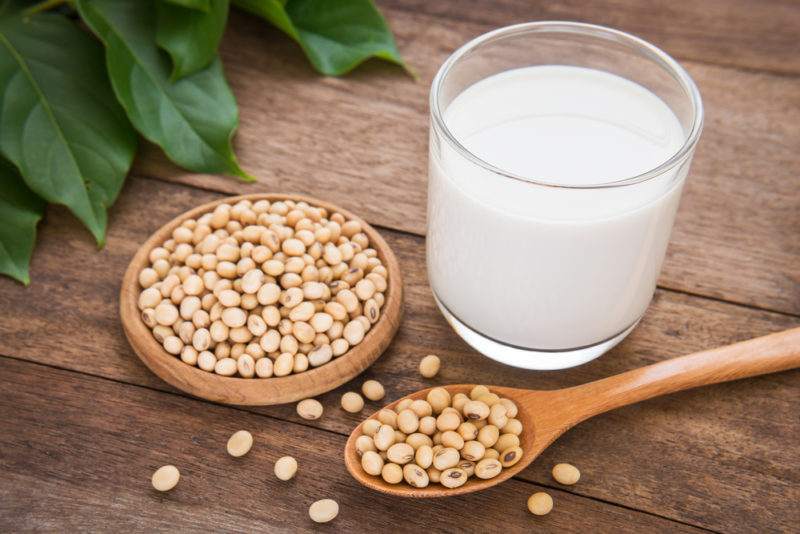Soy milk, soy cream, soy cheese: all these names come forward relatively frequently on European markets. According to a decision issued by the the CJEU yesterday (C-422/16, BSV v TofuTown.com GMBH), however, all these products are currently being marketed under names that do not meet the requirements of EU law. To understand why, let us take a step back.
In the main proceedings, a German association had sued a company producing vegetarian and vegan foodstuff claiming that it infringed German rules on unfair competition by not respecting EU food regulations.

In particular, the company traded several vegetal products using names mainly associated with dairy products, such as "cream", "milk", and so on. The usage of these terms, however, is restricted under EU law, namely Regulation 1308/2013, to "normal mammary secretion obtained from one or more milkings" - in other words, animal products. In turn, names which designate dairy products - such as cream, butter, cheese - are in principle only to be used for products based on animal milk. A very limited set of exceptions, listing names of products traditionally using milk-related names in the Member States, is adopted by means of Commission decision 791/2010. This lists features products such as "coconut milk", "horse-radish cream" and other country-specific words - with separate sections for each language.
The defendant company, however, claimed that allowing a broader understanding of the exception, which would allow the use of diary-related words for soy and other vegetable products, would be in line with the objectives of the Regulation. According to this argument,
"the way in which consumers understand those designations has changed massively in recent years, and that it does not use terms such as ‘butter’ or ‘cream’ in isolation, but always in association with words referring to the plant-based origin of the products concerned, for example ‘Tofu butter’ or ‘Rice Spray Cream" (para 17).
The CJEU did not really engage with the submission, rather reasoning on whether an interpretation that would not allow such a reading would itself go against the Regulation's purposes. According to the court, it would not.
"As is clear from recitals 64 and 76 of that regulation, the objectives pursued by the provisions at issue consist, in particular, in improving the economic conditions for the production and marketing as well as the quality of such products. The application of such standards is therefore in the interest of producers, traders and consumers, to protect consumers and to maintain conditions for allowing competition. Those provisions, in so far as they provide that only the products which comply with the requirements they lay down can be designated by the term ‘milk’ and the designations reserved exclusively for milk products even if those designations are expanded upon by explanations or descriptions such as those at issue in the main proceedings, contribute to the attainment of those objectives." (para 43)
The limitations, according to the court, are necessary for a proper identification of actual milk-based products. Without such limits, both consumers and producers of milk would be harmed. The contextual use of "clarifying or descriptive terms indicating the plant origin of the product at issue" is not sufficient to circumvent the restrictive rules of the Regulation (see also para 31).
In essence, the CJEU saw no reason to investigate whether in the case at stake a risk of confusion existed, either by using an "average consumer" test or otherwise. The Court simply considered itself bound by the list detailed in the Commission's decision of 2010, especially in light of the fact that the Commission would be able to revise such decision with relatively minor troubles.
The Court also briefly considered whether major complaints could be raised against the Regulation under the principles of proportionality and equal treatment. As to proportionality, the analysis remarked that the EU legislator enjoys wide discretion in matters of agricultural markets regulation, due to the broad mandate it enjoys under the Treaty. Concerning equal treatment, and in particular the different approach to producers of non-dairy replacements for animal products (eg veggie burgers), the Court observed that different sectors show different concerns and thus equal-treatment here cannot be invoked to require different situations to be treated equally.
Producers in several member states will now likely have to change their labelling and marketing practices, and/or massively lobby the Commission for amendments to its 2010 decision.
